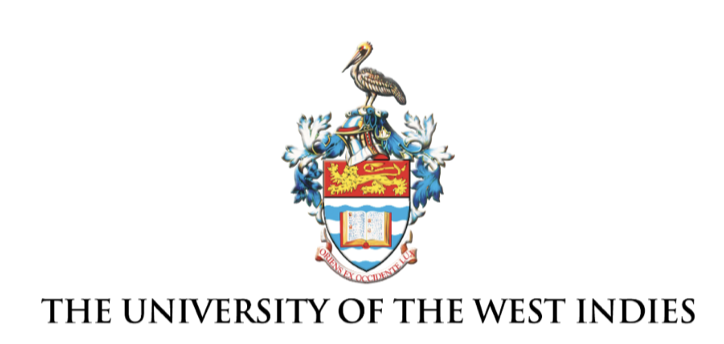Statement from Professor Sir Hilary Beckles: Caribbean response to the Netherlands Apology for Slavery

The UWI Regional Headquarters, Jamaica W.I. Wednesday, December 21, 2022—The following statement is issued by Professor Sir Hilary Beckles, Vice-Chancellor of The University of the West Indies, and Chairman of the CARICOM Reparations Commission in response to an apology for African enslavement, issued by Prime Minister Mark Rutte on behalf of The Kingdom of the Netherlands on December 19, 2022.
It has been near a decade since the Governments of CARICOM established a Reparations Commission to promote regional and global understanding of the enslavement of African people and native genocide with the objective of securing reparatory justice and development for the still suffering people of the Caribbean.
With the formal apology from the Dutch Prime Minister acknowledging that the transatlantic slave trade in enchained African bodies and chattel enslavement were crimes against humanity, the reparatory justice movement has moved into a new phase.
Prime Minister Mark Rutte must be commended for this enlightened development that establishes The Netherlands as the European country best poised to bring global leadership to this long and sustained call for justice. His statement moves us closer to closure in respect of the crippling, criminal chapter in human history.
We recognise however, that this development is best understood as an internal conversation within the Dutch state. The Prime Minister did not bring to the table those who are the survivors of the crimes. The victim communities in the Caribbean and African are not stakeholders to this statement.
Historic though it is, the statement is flawed on the basis that the Prime Minister did not seek the organised input and support of the Caribbean. The unilateralism of the apology and acknowledgments must now move to a multilateral basis. The marginalisation of these victim communities will undoubtedly be experienced as an ongoing approach steeped in the imperial culture we are seeking to replace with a deeper democratic sensibility.
The Dutch State was Europe’s pioneer of the global slavery enterprise. For most of the 17th century it monopolised the transatlantic slave trade and provided the finance and technology that enabled the English, French, Spanish and Portuguese to establish their own slave-based empires. As a result, Amsterdam became the financial centre of Europe and the leading supplier globally of capital for colonisation.
The national enrichment from African enslavement was large and unprecedented. The Dutch community, with the slavery wealth derived from human enslavement, and crimes against humanity, became a sustained developed nation. It continues to be an imperial nation holding Caribbean people impoverished in colonial bondage.
Critically, nonetheless, we acknowledge that the honorable Prime Minister described his statement as ending with a ‘comma’ rather than a ‘full stop’. This metaphor is encouraging and offers hope for the future. The CARICOM Reparations Commission is keen to enable the Prime Minister to complete the Dutch sentence. It looks forward to the next step which must be a dialogue with nations and communities that continue to suffer and expect to be treated with the dignity of participation in the dialogue.
END
About Professor Sir Hilary Beckles
Professor Sir Hilary Beckles, 8th Vice-Chancellor of The University of the West Indies (The UWI) is a distinguished academic, international thought leader, United Nations committee official, and global public activist in the field of social justice and minority empowerment. Among the many leadership roles he currently holds, in 2013 Sir Hilary was selected by the Heads of Government of the Caribbean Community (CARICOM) to be the inaugural Chair of the CARICOM Reparations Commission. Read more here.
About the CARICOM Reparations Commission
The CARICOM Reparations Commission is a regional body created to establish the moral, ethical and legal case for the payment of reparations by the Governments of all the former colonial powers and the relevant institutions of those countries, to the nations and people of the Caribbean Community for the Crimes against Humanity of Native Genocide, the Trans-Atlantic Slave Trade and a racialised system of chattel Slavery. Learn more.
About The University of the West Indies
The UWI has been and continues to be a pivotal force in every aspect of Caribbean development; residing at the centre of all efforts to improve the well-being of people across the region.
From a university college of London in Jamaica with 33 medical students in 1948, The UWI is today an internationally respected, global university with near 50,000 students and five campuses: Monain Jamaica, St. Augustine in Trinidad and Tobago, Cave Hillin Barbados, Five IslandsinAntigua and Barbuda and itsOpen Campus, and 10 global centres in partnership with universities in North America, Latin America, Asia, Africa and Europe.
The UWI offers over 800 certificate, diploma, undergraduate and postgraduate degree options in Culture, Creative and Performing Arts, Food and Agriculture, Engineering, Humanities and Education, Law, Medical Sciences, Science and Technology, Social Sciences, and Sport. As the Caribbean’s leading university, it possesses the largest pool of Caribbean intellect and expertise committed to confronting the critical issues of our region and wider world.
The UWI has been consistently ranked among the top universities globally by the most reputable ranking agency, Times Higher Education (THE). The UWI is the only Caribbean-based university to make the prestigious lists since its debut in the rankings in 2018. In addition to its leading position in the Caribbean in the World University Rankings, it is also in the top 25 for Latin America and the Caribbean and the top 100 global Golden Age universities (between 50 and 80 years old). The UWI is also featured among the leading universities on THE’s Impact Rankings for its response to the world’s biggest concerns, outlined in the 17 United Nations Sustainable Development Goals (SDGs), including Good Health and Wellbeing; Gender Equality and Climate Action.
For more, visit www.uwi.edu.





